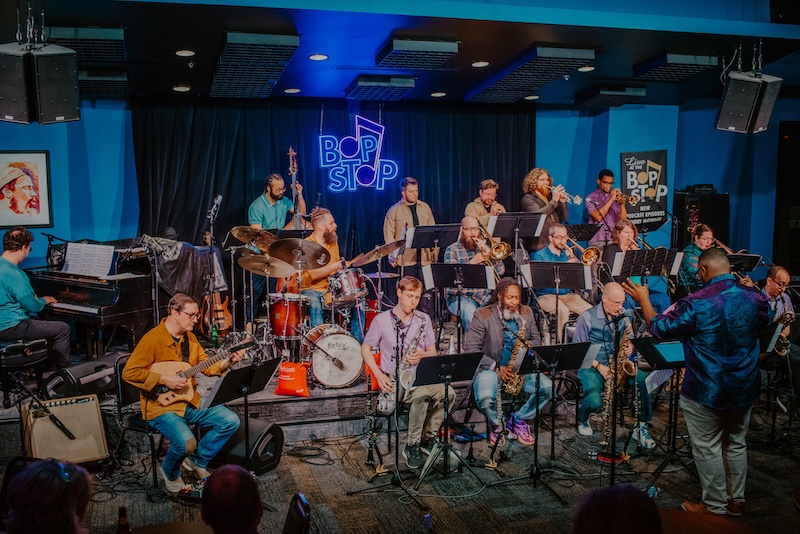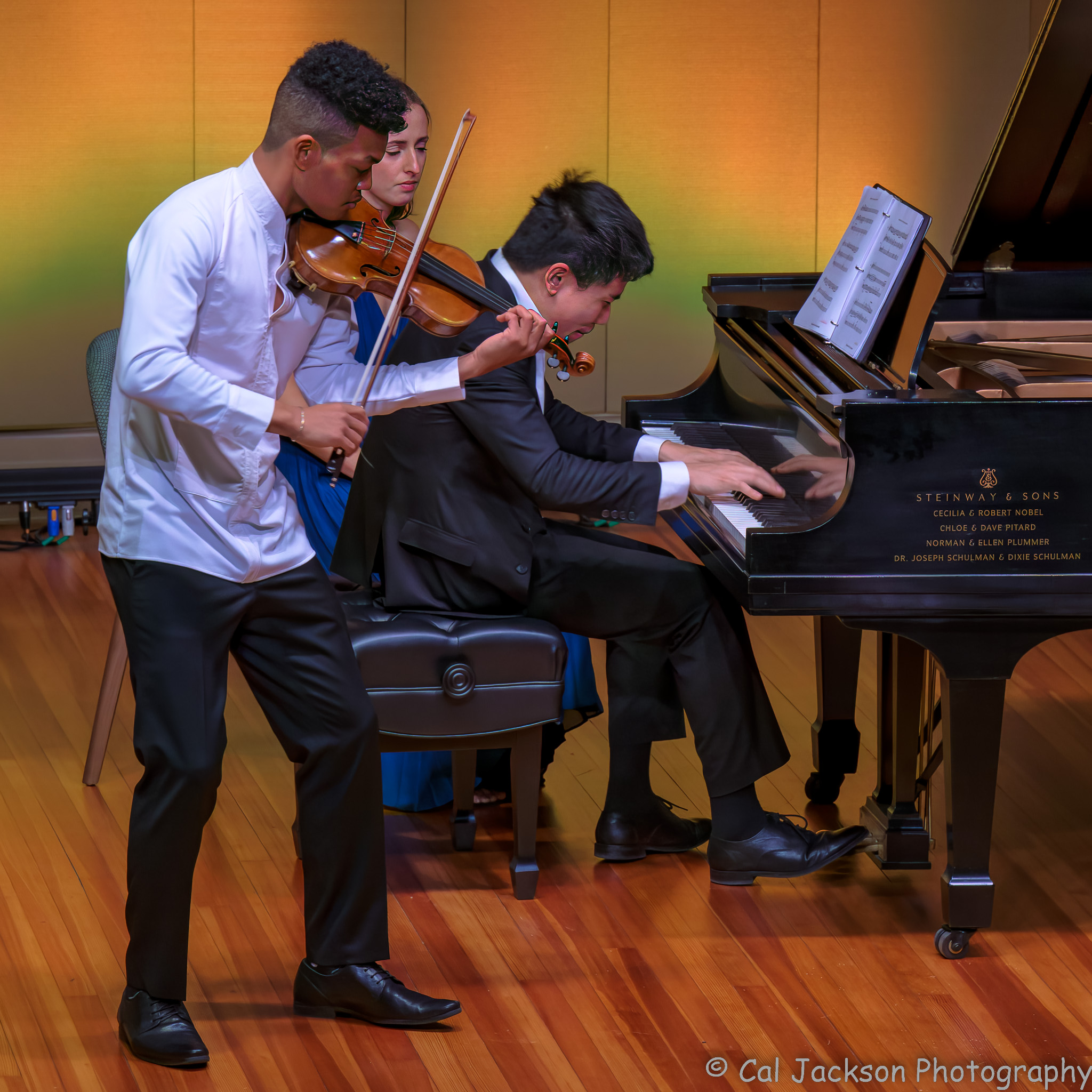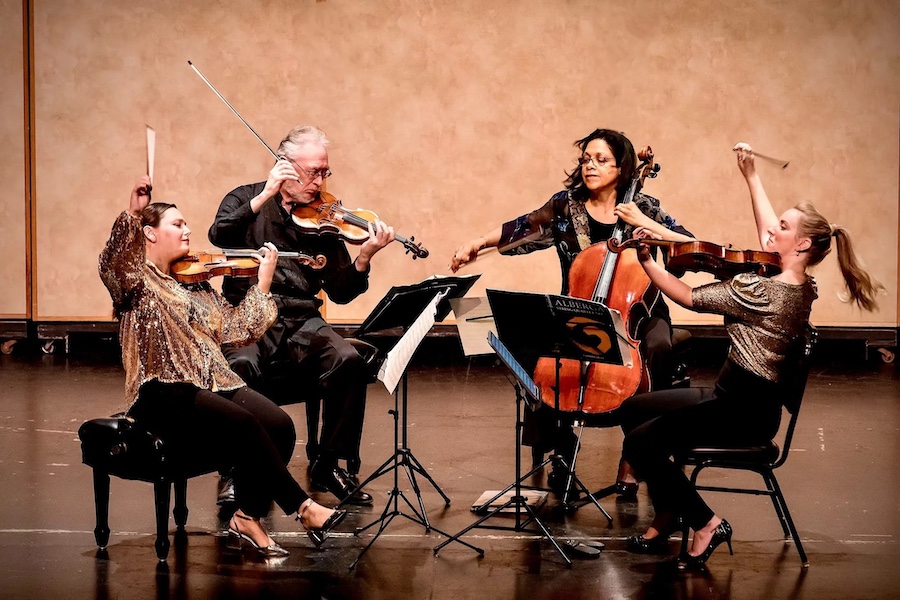Chesapeake Music is delighted to host two exciting Winter Interlude Concerts on back-to-back weekends: an evening of jazz with the Stephen Philip Harvey Jazz Orchestra on Saturday, February 21 at 7:30 p.m. and an afternoon of chamber music featuring the Abeo Quartet with violist Milena Pajaro-van de Stadt at 2 p.m. on Sunday, March 1. While individual concert tickets are available for purchase, Chesapeake Music has also put together a special 2026 Winter Interlude two-concert package at a discounted rate. Both concerts will be performed at The Ebenezer Theater at Prager Family Center for the Arts for the Eastern Shore community.
On Saturday, February 21 at 7:30 p.m., the 17-piece Stephen Philip Harvey Jazz Orchestra will be one of the largest ensembles to ever take the stage at the historic Ebenezer Theater, promising an unmatched, explosive energy that will need to be witnessed (and felt) to be believed! The ensemble will play a mixture of music from their recent album release (“Multiversal”) alongside select works from their first release in 2022 (“Smash!”). Both albums contain entirely original compositions by Stephen Philip Harvey, inspired by comic books and superheroes. The concert will be a pseudo-cinematic experience that will bring the audience into an action-packed setlist of ethereal melodies, hard-hitting counterpoint, and heroic themes.
On Sunday, March 1 at 2 p.m., experience the electric artistry of the Abeo Quartet as they make their return to Easton. Chesapeake Music fans may remember them from their Silver Prize win at the 10th Biennial Chesapeake Chamber Music Competition in 2022. This time around, they will be joined by the luminous violist Milena Pajaro-van de Stadt, founding violist of the twice-Grammy-nominated Dover Quartet and recognized as one of the most sought-after chamber musicians of her generation. Together, these musicians will bring depth, passion, precision, and profound musical dialogue to a thrilling program.
Chesapeake Music offers a limited number of free tickets for students, educators, and Talbot County First Responders, as well as a “buy-one-get-one” option for first-time patrons of Chesapeake Music. General admission tickets are $50, and two-concert packages are $75. Visit ChesapeakeMusic.org for tickets and more information.
Based in Easton, Maryland, Chesapeake Music is a 501(c)(3) nonprofit organization that brings renowned musicians to delight, engage, and surprise today’s audiences, and educate, inspire, and develop tomorrow’s.




